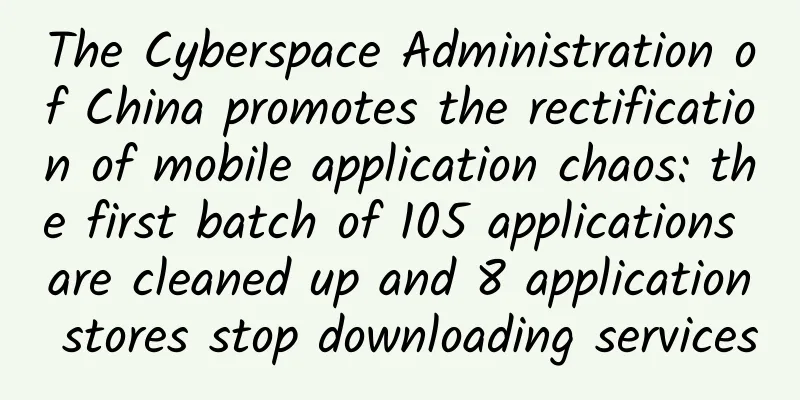The Internet is concentrated in Beijing, so what is the lag in Shanghai?

|
On April 23, Alibaba Group announced that all "Internet services other than e-commerce" would be stationed in Beijing, and Mogujie, which started in Hangzhou, also announced that it would start C2C business and build a research and development center in Beijing. This information seems to have added more heat to the Internet entrepreneurial atmosphere in Beijing, while other cities have been left out. For example, Shanghai, which has always been marginalized, has become impotent after several rounds of baptism by the Internet. Even the question raised by Shanghai Mayor Yu Zhengsheng many years ago, "Why didn't Shanghai produce a Jack Ma", has been labeled with various hats and brought up again and again. Last year, self-media person Huang Yuanpu wrote an article "Dianping moved its capital to Beijing", which vividly experienced the excessive sense of superiority of Beijing media people. Take the Internet alone, Shanghai can be said to have missed an era. If Ctrip is not considered an Internet company, Shanghai only has Dianping.com, which is still active. Hujiang.com, Jiayuan.com, and Baixing.com are still in the tool era. Others such as Liba.com, Dingding.com, and Qijia.com have many problems. Anjuke.com and Kuaiqian.com have been acquired. It is really a sad scene. Shanghai once had opportunities. Qidian, Ku6 and Shanda hoped to build entertainment empires. Game companies such as Giant and 9City were once popular, but now some have delisted and some have stopped. The former hustle and bustle now seems like a dream. So what is the difference between Shanghai and Beijing? I have lived in Shanghai for four years, and I have had colleagues in Beijing offices for each of my jobs. I have also lived in Beijing for nearly two years. Let me tell you from my own experience what is the difference between Shanghai and Beijing. Culture: Mismatch does not mean bad Before the founding of the People's Republic of China, Shanghai was a typical migrant worker city. In other words, it was a place where managers were born in a rigorous and orderly way, with excellent service awareness, but not a place where entrepreneurial heroes who came from humble beginnings were born. This cultural atmosphere has been reflected in Shanghai for decades and has made many industries successful in Shanghai, but it is not very suitable for the Internet. However, it is a complete misunderstanding to say that Shanghai people don't work overtime. Whether to work overtime depends on the development of the industry and the company atmosphere. In the past, Shanda also hired employees at the rhythm of "not being satisfied unless you are disabled". In the chip industry, after an engineer died of overwork, everyone found that one of the two bedrooms allocated to him by the company had never been opened, and his salary card was basically unused. So, if we have to explain why Shanghai is not suitable for the Internet from a cultural perspective, I think it is because Shanghainese are conservative and shrewd. They are unwilling to take too much risk. This business philosophy has been verified in many industries, such as finance, fashion and many traditional industries. Not suitable does not mean bad. After the Internet boom, it will return to rationality. When it comes to slowing down, Shanghai still has advantages. Policy is not the key to success Because of my work, I have been in contact with information departments in Zhongguancun, Shanghai Pudong New Area, Putuo District and other districts, and have also participated in various special fund applications and other work, plus daily communication with friends. The overall result is that I don’t think Beijing’s policy support is much higher than Shanghai’s. The rise of the Internet itself has a grassroots color. When Huawei was in crisis, the top management went there and brought orders, saving Huawei from the trough. But I can't imagine how much industrial opportunities Premier Li Keqiang's visit to 3W Coffee could create. Many entrepreneurial parks and incubators jointly promoted by the government are similar. There are sincere entrepreneurs and speculators who fish in troubled waters. People who really want to start an Internet business rarely live or die because of policies unless they have reached the current policy red line. So whether Shanghai's Internet is good or not actually has nothing to do with policies, but depends more on capital. Of course, I haven’t done enough in-depth research on the policy level, so friends who are familiar with it are welcome to give me some advice. Capital and talent disadvantages Beijing is dotted with universities and start-up companies, and capital bubbles are rampant. There is an exaggerated joke circulating on the Internet that if you take your computer to a coffee shop like Garage or 3W Coffee, investors will come and ask you if you want to invest. From the perspective of capital and talent, Shanghai is indeed inferior. In terms of the number of universities, although Shanghai also has first-class universities such as Fudan University, Tongji University, and Jiaotong University, these talents are relatively scattered and have not formed a cluster effect. From the perspective of capital, most of the active Internet capital is active in Beijing, and there are relatively few in Shanghai. The more important reason is that Shanghai's absence in the PC era has led to a sharp shortage of industry talent. Currently, many startups have talent from BAT. People who started their own businesses from Sohu in the early years can form a "startup gang". When a company grows and develops, the talents it has cultivated can be separated to form another small company with the flavor of the parent company. In addition to producing people, they can also bring in money. This kind of differentiation has also appeared in Silicon Valley, such as Fairchild's "rebellious eight" and the "PayPal gang". However, Shanghai has not formed this kind of accumulation and inheritance, so from the perspective of talent and capital, one wrong step will lead to all wrong steps. This sentence is quite appropriate to describe Shanghai. Does Shanghai still have a future? Having said so many bad things about Shanghai, does it mean that Shanghai has no future? I think it is just the opposite. With the rise of O2O, Shanghai will have more opportunities. In addition to the rapidly rising food delivery platform Ele.me and Yangmatou Overseas Shopping, Shanda's "invisible man" has also stepped out from behind the scenes and started an Internet business. The recent hot footprint also came from Shanghai. In addition, I have also come into contact with some local Shanghai Internet and traditional industry startups, such as insurance, catering services, etc. "Out of Control" mentioned that a persistent state of shaky ground is a prominent feature of life, which is full of turbulence but can also maintain a certain degree of balance. I think the development of the Internet has already shown a phenomenon of collapsing balance, and as it becomes more and more closely integrated with traditional industries, this collapse will slowly return to normal. In addition to Momo, which started as a dating app, Didi and Ele.me, which have all been rapidly rising in the mobile Internet, have also been accompanied by a lot of money burning. Many failed startups are regretting why they could not be more ruthless. This kind of competition is destructive competition and cannot generate more value. When the Internet returns to a little rationality and truly competes on service and quality rather than courage, Shanghai's advantages will be revealed. There are two kinds of thresholds. One is to do what others are unwilling to do, such as burning money and subsidies; the other is to do what others cannot do, such as occupying industrial advantages. Even if others see it, they cannot close the technological gap in a short period of time. Shanghai is obviously suitable for the latter. O2O is an upgrade of the information revolution, and the huge iceberg is still submerged in the water. If the traditional industry opportunities accumulated in Shanghai can be well combined with Internet products, it will be an opportunity for Shanghai's Internet to take off again. If we must use Alibaba as a weather vane, then what Jack Ma said was that Internet businesses other than e-commerce should be moved to Beijing, which means that Alipay and related financial businesses must remain in Shanghai. As a winner of Toutiao's Qingyun Plan and Baijiahao's Bai+ Plan, the 2019 Baidu Digital Author of the Year, the Baijiahao's Most Popular Author in the Technology Field, the 2019 Sogou Technology and Culture Author, and the 2021 Baijiahao Quarterly Influential Creator, he has won many awards, including the 2013 Sohu Best Industry Media Person, the 2015 China New Media Entrepreneurship Competition Beijing Third Place, the 2015 Guangmang Experience Award, the 2015 China New Media Entrepreneurship Competition Finals Third Place, and the 2018 Baidu Dynamic Annual Powerful Celebrity. |
<<: How serious is Android fragmentation? One developer tackles 4,000 devices
>>: Xiaomi will lose the patent war? Where does Ericsson get the confidence from?
Recommend
Geng Shuang made his first appearance at the United Nations with a full English speech
Geng Shuang made his first appearance at the Unit...
Alien spacecraft? Asteroid? Five years ago, its arrival puzzled scientists
No romance can compare to the sea of stars Peop...
One reason is enough to advise you to eat more apples!
An apple a day keeps the doctor away. I'm sur...
1,300 years from now, Legos might still be popping up on this beach…
For beachcombers , Cornwall, in the southwest cor...
Sanxingdui's "world's best" will be on the Spring Festival Gala in the Year of the Tiger, and it is still amazing after 3,000 years
On the eve of the Lunar New Year, at the "Sa...
Why can I still eat dessert when I am already full? Do I really have another stomach?
Image source: Unsplash When you have just finishe...
How does the APP achieve automatic renewal?
01. Goal Implement the function of automatic memb...
Little Red Book video notes operation tips!
2021 will still be a year of rapid development fo...
Kuaishou Operation Guide from 0 to 1
As the saying goes, "Everything is difficult...
Audi announces the "death date" of the internal combustion engine: all models will be electrified within 15-20 years
Recently, foreign media revealed that Audi is act...
2021 Aconite Black Hat One-to-One Guidance SEO Course
Course Catalog 1. Analyze common black hat practi...
Ele.me - The product operation logic behind being willing to wait for 5 minutes
Based on the market’s reactions and changes, Ele....
“Photochromic”: Visible Energy-Saving Color
Energy conservation and emission reduction are cu...
Do I still need to do cervical cancer screening after getting the HPV vaccine?
Recently, the National Health Commission pointed ...
"Alkalosis" caused by excessive excitement, in which situations is it easy to "overbreathe"?
Expert interviewed: Guo Xiheng, chief physician o...









